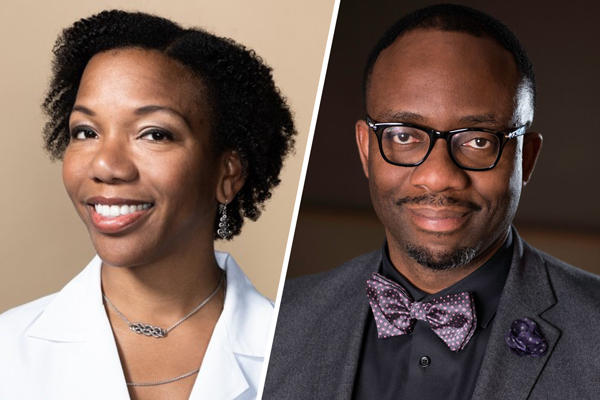
Black physicians in Texas have a long history of community involvement, and COVID-19 has at once created more opportunities and underscored the importance of that work.
For M. Yvette Williams-Brown, MD, that became apparent when she volunteered at a COVID-19 vaccine site in spring 2021 as part of a combined effort between the Austin Black Physicians Association, Austin Public Health, and East Austin churches, just after vaccines for the disease became widely available.
Black Americans have been disproportionately affected by the disease, yet early surveys showed they were less likely than any other racial or ethnic group to get a COVID-19 shot. A long history of discrimination against Black Americans among medical professionals helped keep this population away from vaccination sites, the surveys showed.
“There’s a lot of mistrust of the health care system as a whole just because of the history of how the health care system has treated Black people in general,” said Dr. Williams-Brown, a gynecologic oncologist and associate professor of women’s health at The University of Texas at Austin Dell Medical School. “That’s a lot of history to unpack, and it’s very difficult and challenging for some people to see past that.”
But on a spring day last year, she and other Black health care professionals set out to help people do just that at Austin’s St. James Missionary Baptist Church, which serves a predominantly Black congregation. Dr. Williams-Brown says she spent a lot of time addressing people’s concerns and convincing them that the COVID-19 vaccines were safe.
“It was nice to connect with the community that way, and people appreciated us coming out,” she said. “There were some who were very hesitant to get the vaccine, but they were willing to come to that event specifically. And I think having people physically there in their community and also having Black physicians and nurses and [medical] students that they identified with helped as well.”
This type of community-specific health education, as well as more general outreach to Black Americans, has had a profound impact, according to a January 2022 study by JAMA Open Network. Vaccine hesitancy among Black people has dropped more rapidly than among white people, it found.
In El Paso, the pandemic helped turn infectious disease specialist Ogechika Alozie, MD, into a go-to source for reliable information on COVID-19. International news organizations like the BBC and MSNBC have quoted him on pandemic-related topics, and that in turn has raised his profile locally.
While he once did occasional speeches to encourage young people, he now does them at least once a month. And while he gladly encourages young Black people to think about careers in medicine, he’s more concerned that his listeners find what makes them happy – to find what he described as “your North Star as you navigate life.”
“It’s to help them understand all things are possible,” he said. “You’ve got to work hard, and there will be challenges but there will be [opportunities] out there.”
Like Dr. Williams-Brown, Dr. Alozie has long served as a mentor to Black students, and that work also accelerated as the pandemic took off. Students’ concerns vary according to their age level, he says. In his experience, high school and college students typically are more worried about advancing to the next academic level than about racism.
“And by the time they’re residents or physicians, the conversations are a lot different,” he said. “We’re having conversations about racism and classism and bias among their mentors, or [about] patients treating them like the janitor even though they clearly have an MD sign on.”
Dr. Alzoie’s best advice in those situations is to adopt the philosophy of March Madness college basketball playoffs – survive and advance. Once students or residents become practicing physicians, they will be in a better position to address any racism they might face, he says.
He’s also blunt about both the limitations and the possibilities of being a physician.
“If you think you’re going to change the world because of [being a physician], go do something else,” he tells them. “But if you think you’re going to change one patient’s life at a time and hopefully change the world from there, that’s a very different direction.”